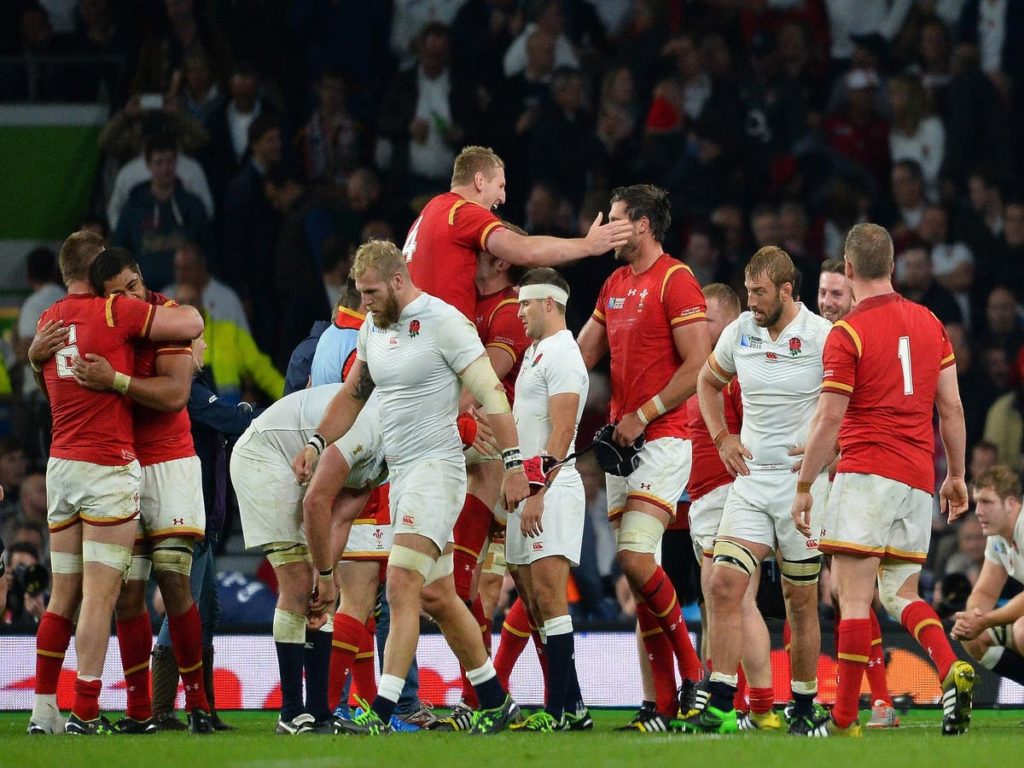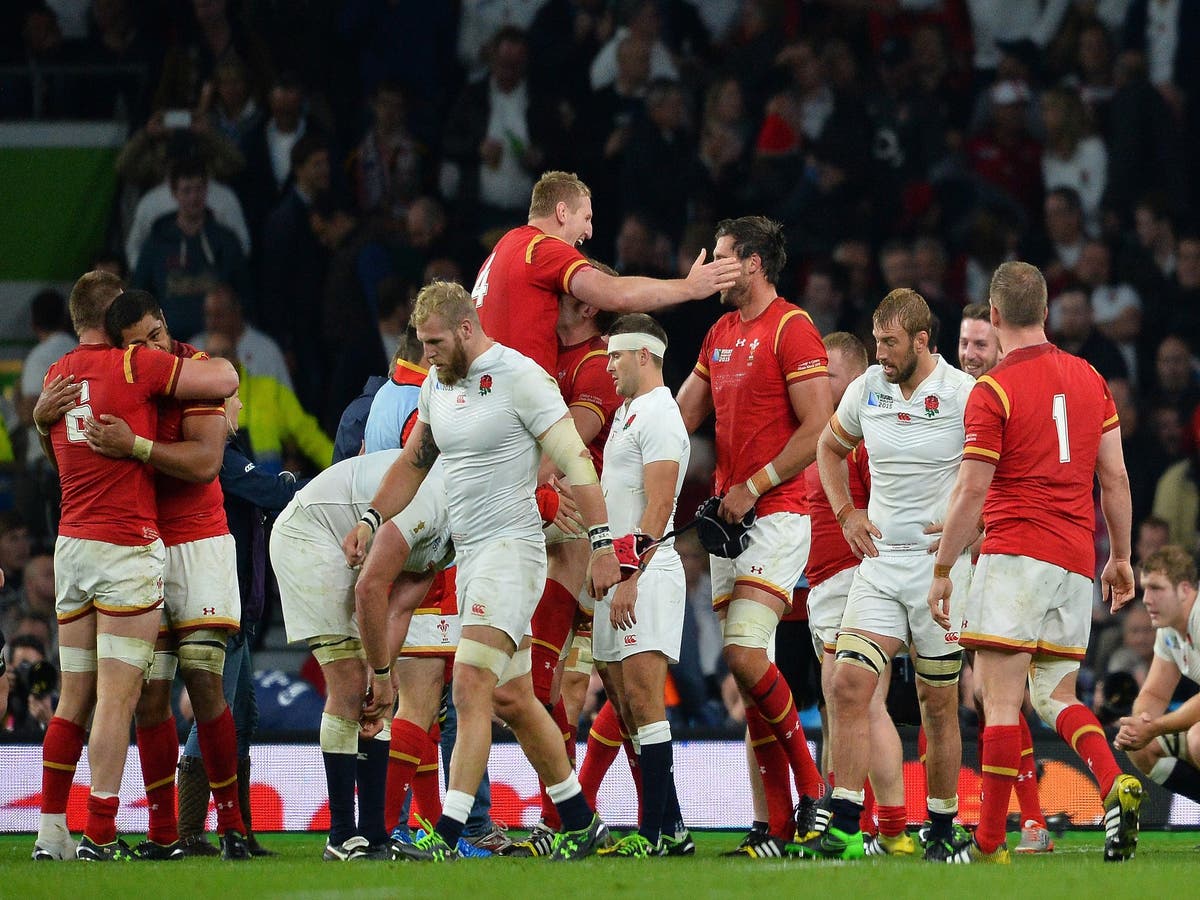In 2015, the England rugby team crashed out of the Rugby World Cup without making it to the knock-out stages for the only time in the England’s World Cup’s history – and in front of a sell-out home crowd in their usually fortress-like stadium, Twickenham. To rub salt in the wound, they lost to one of their great rivals, Wales.

England failure
Home world cups are special. You get to play in front of your fans, you don’t have to travel anywhere, you have home field advantage, and they happen once in a career for most players. To have been unceremoniously dumped out of the cup so early must have really hurt. The players trudged off to the changing room heads held low to face the music, and the inevitable bitter disappointment and pain that would come.
I am really curious about how this team dealt with that failure. Put yourself in their shoes. How would you have reacted – as a player, the team captain, the coaching staff… in the face of defeat? What was the ‘right’ thing to do?
How does your team deal with failure? No team succeeds all the time. We all fail now and again, and sometimes, often. The past year has seen an awful lot of failure. Loss hurts. We are competitive animals – it’s not called the human race for nothing. And teams are formed for the express purpose of succeeding at something that we can’t do alone. Winning and achieving is the whole reason a team exists. Your response and how you handle losing will have a huge bearing on your future. And failure comes with the territory.
The thing is, too many teams fail to deal with it properly and this can set them up for more failure, and more pain when it happens again. Teams need to develop protocols and mindset that deals effectively with failure, so it doesn’t become something that destroys them.
So, how should you handle failure? What should that England rugby team have done when they shut the doors in the changing room after the game?
Don’t Run, Don’t Hide
It’s happened. You have failed. Sticking your head in the sand won’t help. Failure will still be there when you pull it out again. Be brave, front up and look each other in the eye. Don’t let people skulk out and pretend it hasn’t happened. You need to be honest and deal with it like grown ups.
Let People Know it’s OK to Fail
As much as it completely sucks to fail, healthy teams allow it. We have our best learning when we fail. If we don’t fall over when we are toddlers learning to walk, how do we learn how to do it? Innovation only comes with trying things and failing. Don’t cripple your team by having people get too scared to fail. Yes, you have to assess risk and walk the fine line, especially if lives are at stake, but you will know where you can accept a level of failure.
Encourage Ownership & Responsibility
Create an expectation that people own up and take individual responsibility for their part in the failure. Having the courage to be honest is vital for dealing with it and moving forward. Yes, there have to be consequences to failure, but everyone should be very clear that they need to be honest and speak up about their part in it.
Let it Hurt
Don’t pretend that failure doesn’t hurt. It does. Allow people to have that moment of hurt, express it, let it out – it’s OK to scream and shout about it, as long as it doesn’t degenerate into finger pointing and blaming each other. But allow the pain to vent out of your team. That energy needs to be released before you can move forward. Just release it into the ether, and not to each other. See below…
Take Ten Steps
Most golfers when they hit a bad shot let the memory of that shot live with them. And when they next take a shot, especially if it’s the same shot – say off the tee – the previous time they did it and failed at it comes right back to haunt them. Sometimes it’s weeks between those shots but as they step onto the tee, the memory comes back and sure enough, they do it again!
Here’s a tip from Tiger Woods. When he hits a bad shot, he allows himself to be angry and hurt by it – but only for ten steps. He let’s himself wallow in it, experience it fully, be angry or feel whatever he wants to feel about it whilst he takes ten steps towards his next shot – but after ten steps, he mentally shuts the door on that shot and moves on. How can your team adopt this principle? It will take practice, but it’s a great tactic.
Look Each Other in the Eye
There’s nothing worse than everyone avoiding each other when your team has failed. Heads go down, eye contact goes missing, people avoid each other. Be brave and front up as a team. Have an open discussion about what happened. Don’t go quiet and ignore it.
Have Meaningful Consequences to Failure
I know teams that have targets, but they have no consequences for their people if they fail to hit those targets. There’s no carrot or stick motivation to perform. They miss the deadline, or fail to reach the number and… nothing happens.
You must have a meaningful consequence to failure. Some people will motivate themselves because they are competitive and that’s enough, but don’t let failure be meaningless. And stick to whatever consequence you decide is the outcome of failure. Don’t shy away from making tough decisions and accepting the punishment that comes with the territory. If you don’t follow through with what you said would happen, then people won’t be motivated to work hard to avoid failure in the future.
Allow the Dust to Settle
Failure can sometimes illicit a strongly emotional knee jerk reaction to deal with it. Try not to make decisions when this is happening. You need to let these emotions run as part of the process, but wait unto the dust settles before you start to look at what’s next and make decisions only when you are calm and rational. Take deep breaths, ten steps, sleep on it – allow what tie you can afford to regroup and let the emotions subside.
Feed Forward
When you are ready, you will need to start discussing what happened, how you can learn from it, and what will you do differently in the future to prevent it happening again. This means frank and honest discussions and feedback. Don’t let blame and finger pointing happen. Feedback should actually be feedforward. What’s happened can’t be changed. It’s done. All you can do is learn from it and have a positive, intentional attitude about how it informs you about your future. Then you can have productive discussions about lessons learned and effective decision making about the future.
If/Then Thinking
Good teams have a practice or policy of ‘if/then’ thinking. If this happens, then we do that. Looking forward, how can you anticipate possible failure and put steps and plans into place so you know what to do if it does happen? Good teams are honest about the fact that they are never going to be perfect. The more you can do to be ready to deal with failure, the more successful you will be.
